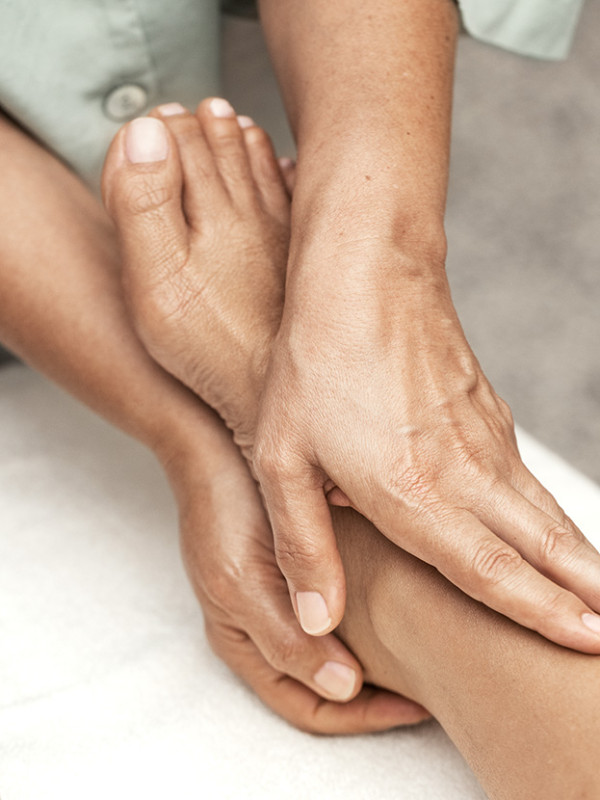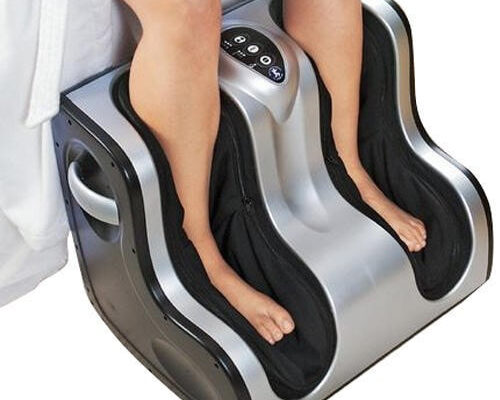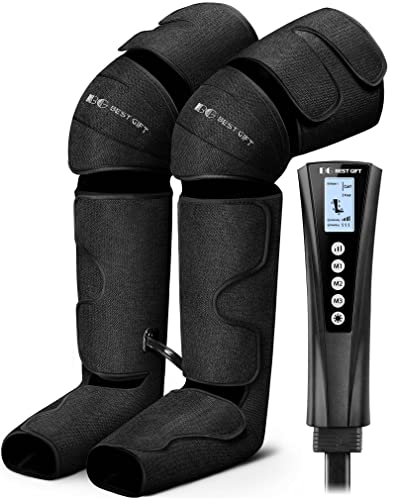Yes, there are contraindications for foot massage. Certain conditions make foot massage unsafe or unsuitable.
Foot massage can be a soothing and beneficial practice. It helps to relieve stress and improve circulation. But, not everyone should get a foot massage. People with certain health issues may need to avoid it. Understanding when foot massage is not safe is important.
This ensures that you do not cause harm while seeking relief. Knowing the contraindications helps to make informed decisions. Let’s explore the conditions that may require caution or avoidance of foot massage. This will help you enjoy the benefits of foot massage safely.
Introduction To Foot Massage
Foot massage can be relaxing and beneficial. Some people, such as those with foot fractures, infections, or blood clots, should avoid it. Always consult a doctor if unsure.
Foot massage is an ancient practice. It involves applying pressure to specific points on the feet. Many people find it relaxing and beneficial. The techniques used in foot massage can vary. Some methods focus on general relaxation. Others aim to target specific ailments.Benefits Of Foot Massage
Foot massage offers many benefits. It can improve blood circulation. This helps deliver oxygen and nutrients to cells. It can also reduce stress and anxiety. Many people find it soothing. Foot massage can relieve pain and tension. It can also improve sleep quality. Some believe it strengthens the immune system.Popularity And Cultural Significance
Foot massage is popular worldwide. In Asia, it has deep cultural roots. Traditional Chinese medicine values foot massage. It is often used in daily routines. In the West, foot massage is gaining popularity. Many spas offer it as a service. People appreciate its relaxing effects. It is becoming a part of wellness routines. “`
Credit: www.sciencedirect.com
General Contraindications
Foot massages can bring relief and relaxation, but they aren’t for everyone. Some people should avoid them due to health reasons. These are known as general contraindications. Knowing these can help you stay safe.
Medical Conditions
People with certain medical conditions should avoid foot massages. These conditions include:
- Diabetes: It can cause nerve damage in the feet.
- Blood clots: Massaging could dislodge a clot, causing serious issues.
- Heart conditions: Massages might put extra strain on the heart.
- Infections: Avoid massage if you have an infection in the foot.
Consult a doctor if you have these conditions before getting a foot massage. Your health comes first.
Skin Issues
Foot massages can also be a risk for people with skin issues. Conditions to watch out for include:
- Open wounds: Massaging can worsen these and delay healing.
- Rashes: Massages can spread the rash to other areas.
- Fungal infections: Conditions like athlete’s foot can spread through massage.
- Blisters: Pressure from massaging can cause them to burst.
Check your feet before a massage. If you see any skin issues, it’s best to avoid the massage.
Specific Medical Conditions
Foot massages offer many benefits, including relaxation and pain relief. But, some medical conditions can make foot massages unsafe. It is vital to know these conditions to avoid risks.
Diabetes
People with diabetes need to be careful with foot massages. Diabetes can cause nerve damage, known as neuropathy. This damage can make it hard to feel pain or injury in the feet.
Here are some risks for diabetics:
- Infections: Small cuts or sores can lead to serious infections.
- Poor Circulation: Diabetics often have poor blood flow, slowing healing.
- Ulcers: Pressure from massage can cause ulcers in diabetics.
Always consult a doctor before getting a foot massage if you have diabetes.
Deep Vein Thrombosis
Deep Vein Thrombosis (DVT) is a condition where blood clots form in deep veins. These clots usually form in the legs. Foot massages can be dangerous for people with DVT.
Why is it risky?
- Clot Movement: Massage pressure can move clots to vital organs.
- Pulmonary Embolism: If a clot travels to the lungs, it can cause a blockage.
- Stroke: Clots moving to the brain can lead to strokes.
If you have DVT, avoid foot massages and see a doctor for proper care.

Credit: www.healthline.com
Infectious Diseases
Foot massages are soothing and beneficial. They improve blood circulation and reduce stress. But, some conditions require caution. Infectious diseases, for example, may need special attention. Understanding these infections can help ensure safe practice.
Fungal Infections
Fungal infections are common on feet. Athlete’s foot is a well-known example. It causes itching, redness, and peeling skin. The fungus thrives in warm, moist environments. Public showers and swimming pools are common places to contract it.
Foot massages can spread the infection. Always check for symptoms before starting. If you see signs, avoid massaging the affected area. Proper hygiene is crucial. Wash hands thoroughly before and after the massage. Use disposable gloves if needed.
Viral Infections
Viral infections can also affect the feet. Plantar warts are caused by the human papillomavirus (HPV). These warts appear on the soles of the feet. They can be painful and are highly contagious.
Avoid massaging areas with warts. This prevents spreading the virus. Use protective measures like gloves. Clean and disinfect tools and surfaces. Educate clients about the risks and symptoms.
| Infection Type | Common Symptoms | Precautions |
|---|---|---|
| Fungal Infections | Itching, redness, peeling skin | Avoid affected areas, wash hands, use gloves |
| Viral Infections | Painful warts on soles | Avoid warts, use gloves, disinfect tools |
- Always inspect feet for signs of infection.
- Maintain strict hygiene practices.
- Educate clients about potential risks.
Pregnancy Considerations
Foot massage can bring relief and relaxation. But pregnancy requires special care. There are key factors to consider before a foot massage. It’s vital to ensure the safety of both mother and baby.
First Trimester
The first trimester is a delicate period. Hormonal changes occur rapidly. The risk of miscarriage is higher during this time. Strong pressure on certain points may trigger uterine contractions. Always consult a healthcare provider before any massage.
High-risk Pregnancies
Women with high-risk pregnancies need extra caution. Conditions like preeclampsia, diabetes, or a history of miscarriage make massage more complex. Foot massage can still offer benefits, but only with professional guidance. A specialized therapist can help avoid any risks.

Credit: www.drhauschka.com
Circulatory Problems
Foot massage offers many benefits, such as relaxation and pain relief. But it can be risky for people with circulatory problems. These conditions affect blood flow and can make massage harmful. Here are two key issues to consider.
Varicose Veins
Varicose veins are enlarged, twisted veins. They often appear in the legs and feet. These veins can cause pain and swelling. Massaging varicose veins can lead to more issues.
Here are some reasons why:
- Increased Pain: Applying pressure can hurt sensitive areas.
- Clot Risks: Blood clots might form or move.
- Worsened Swelling: Massage can make swelling worse.
Consult a healthcare provider before getting a foot massage if you have varicose veins.
Peripheral Artery Disease
Peripheral artery disease (PAD) limits blood flow to limbs. This condition can make walking painful. It can also cause wounds to heal slowly.
Massaging feet with PAD can pose risks:
- Increased Pain: Pressure can cause discomfort.
- Poor Healing: Foot wounds may not heal well.
- Reduced Blood Flow: Massage can limit blood flow further.
If you have PAD, talk to your doctor before seeking a foot massage.
Allergic Reactions
Foot massage can trigger allergic reactions in some individuals. Essential oils and lotions used may cause skin irritation. Always check for allergies before starting.
Foot massages can be relaxing and beneficial. But there are risks of allergic reactions. These reactions can affect your skin and overall experience.Skin Sensitivities
Some people have sensitive skin. Foot massage can irritate sensitive skin. Redness, itching, or rashes can occur. This can make the massage uncomfortable. Always check your skin before a massage. Avoid massaging areas with open sores or infections.Reaction To Oils And Lotions
Massage oils and lotions can cause allergic reactions. Ingredients in these products can irritate the skin. Some people are allergic to fragrances or essential oils. Always test a small amount on your skin first. If redness or itching occurs, avoid using it. Opt for hypoallergenic products for sensitive skin. This reduces the risk of reactions during the massage. “`Safety Measures
Foot massage can be very relaxing. But safety measures are important. There are some contraindications for foot massage. Knowing them ensures a safe experience.
Consultation With Healthcare Providers
Before getting a foot massage, consult your healthcare provider. This is important if you have health conditions. Some conditions may make foot massage unsafe.
Here are some conditions to discuss with your doctor:
- Diabetes
- Blood clots
- Osteoporosis
- Foot infections
Your doctor can tell you if foot massage is safe. They can give advice based on your health needs.
Choosing A Qualified Therapist
Choose a qualified therapist for your foot massage. This ensures you get safe and effective treatment. Look for therapists with proper certification.
Here are some tips for choosing a therapist:
- Check their qualifications and certifications.
- Ask about their experience with foot massage.
- Read reviews or ask for references.
A qualified therapist will know how to handle various health conditions. They will ensure your foot massage is both safe and beneficial.
Safety measures are key for a good foot massage experience. Consult your doctor and choose a qualified therapist. This way, you can enjoy the benefits without any risks.
Frequently Asked Questions
Can Everyone Get A Foot Massage?
Not everyone should get a foot massage. People with certain conditions like deep vein thrombosis or severe osteoporosis should avoid it. Always consult your healthcare provider before getting a foot massage if you have health concerns.
Is Foot Massage Safe During Pregnancy?
Foot massage can be safe during pregnancy. However, it’s crucial to avoid pressure points that might trigger contractions. Consulting with a healthcare provider is recommended before getting a foot massage during pregnancy.
Are There Medical Conditions That Prevent Foot Massage?
Yes, certain medical conditions prevent foot massage. These include severe circulatory issues, infections, and unhealed fractures. Always consult your doctor before getting a foot massage if you have medical conditions.
Can Diabetes Patients Receive Foot Massages?
Diabetes patients can receive foot massages with caution. They should ensure that the therapist is experienced in handling diabetic feet. Consult your healthcare provider before proceeding with a foot massage.
Conclusion
Foot massage offers many benefits, but some people should avoid it. Those with severe injuries, infections, or certain medical conditions need caution. Pregnant women should consult a doctor first. Always communicate with your massage therapist. Share any health concerns. This ensures a safe and relaxing experience.
Remember, foot massage can be a great way to relax. Just ensure it’s safe for you. Prioritize your health and well-being.



